BMW has revealed UK pricing and spec details for a range of new plug-in hybrids, alongside announcing updates for existing models.
The latest editions to the German maker’s PHEV line-up are the X3 xDrive30e and X5 xDrive45e, available to order from £47,565 and £63,165 respectively.
The smaller of the two, the X3, is powered by a 2.0-litre four-cylinder turbo petrol engine with an electric motor for a total output of 248bhp. It’s also equipped with ‘XtraBoost’, an on-demand system that adds 41bhp from the EV system at the touch of a button.
It promises an all-electric range of up to 34 miles, economy of up to 128mpg and CO2 emissions of 49g/km, alongside a 0-62mph time of 6.1sec. Production of the X3 xDrive30e will begin in December, with SE, xLine and M Sport trims offered.
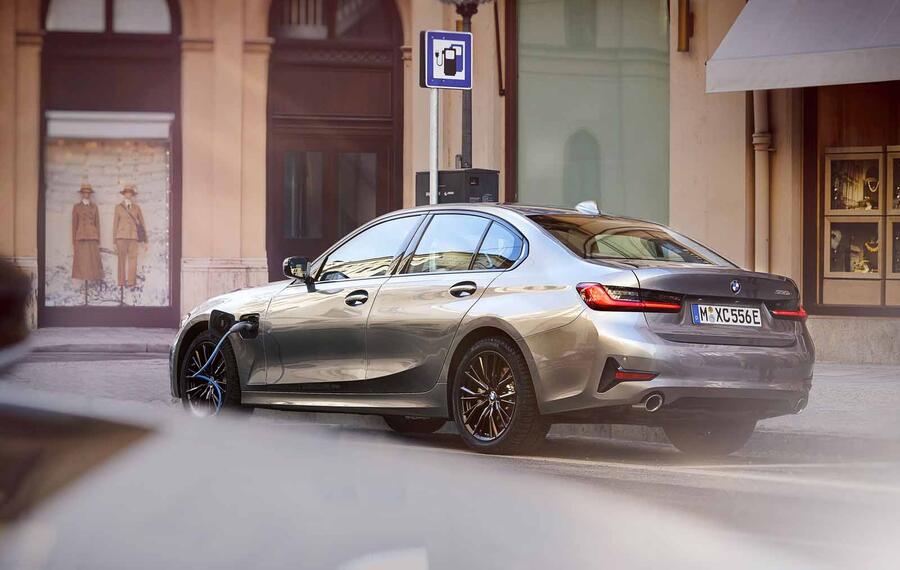
The plug-in X5 makes use of a 3.0-litre inline six-cylinder engine mated to a 113bhp electric motor, combining for a peak 389bhp and 442lb ft. A significantly larger 24kWh battery allows a quoted all-electric range of 54 miles - three times that of the old model. Economy is quoted at up to 235mpg, with 39g/km of CO2, while it manages 0-62mph in 5.6sec and a 146mph top speed.
The BMW 330e, which we drove earlier this year, is also now on pricing lists in the UK. It comes in four trim levels, promising 0-62mph in 6.0sec and up to 201mpg, and is priced from £37,875.
Two other BMW PHEVs, the 530e saloon and 225xe Active Tourer, see new lithium batteries fitted to improve range. The packs have the same dimensions as the ones they replace but the energy content has increased from 9.2kWh to 12kWh, boosting EV range to up to 35 miles on the 530e and 31 miles on the 225xe.
The former promises up to 156mpg and CO2 emissions as low as 36g/km, although this worsens significantly with the addition of xDrive all-wheel drive. The 225xe is claimed to offer up to 166mpg.
Read more
BMW readies US factory for plug-in versions of X3 and X5
BMW M1 reborn as 592bhp plug-in hybrid

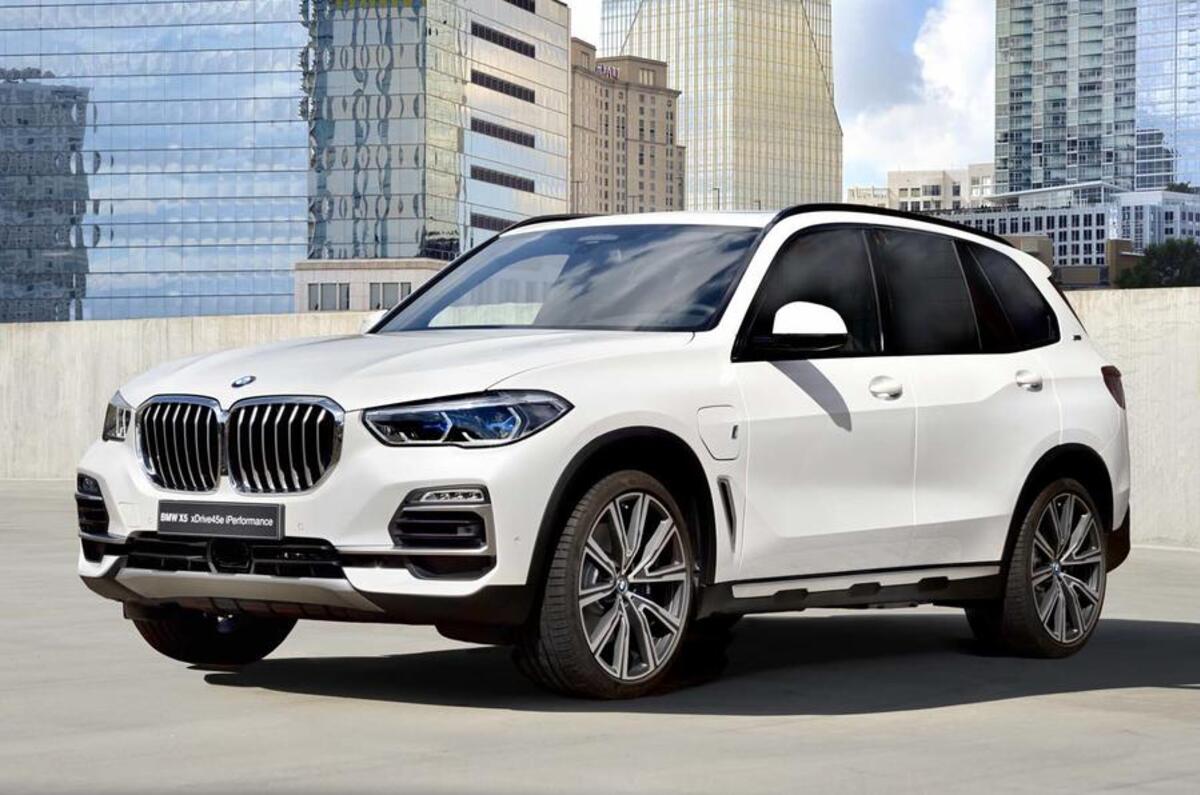
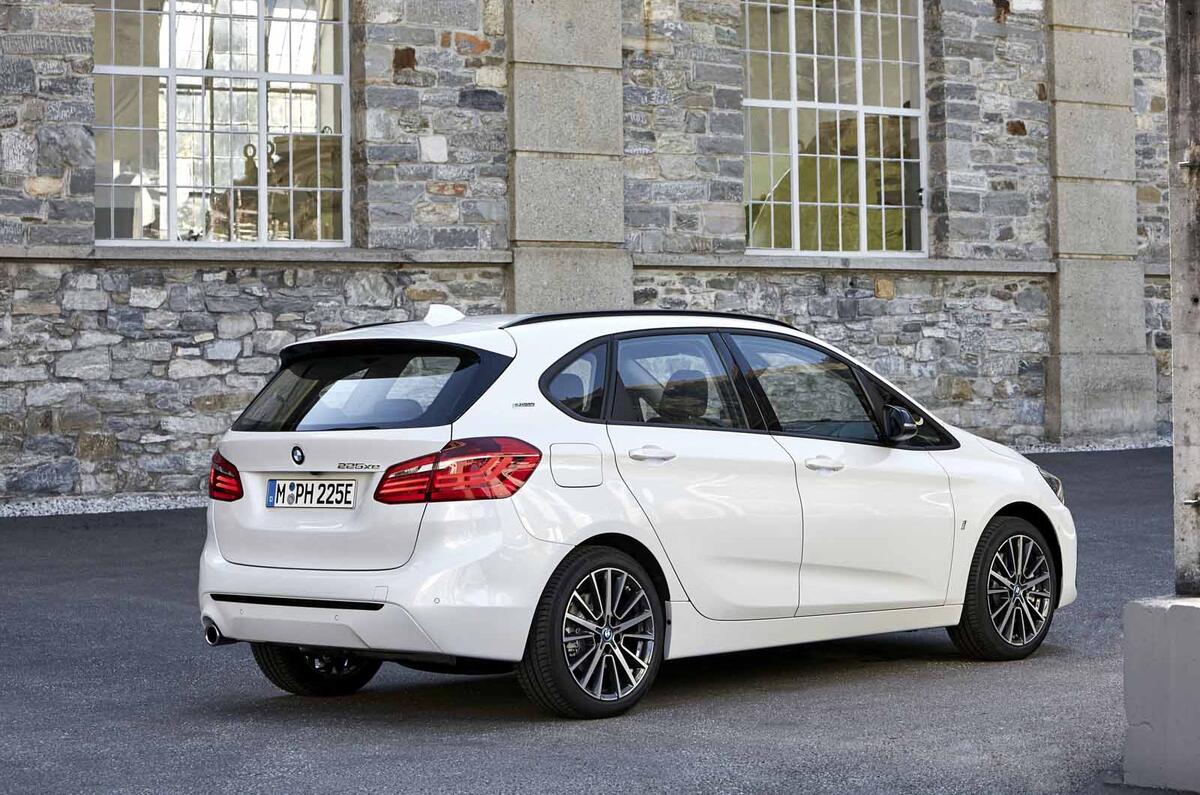
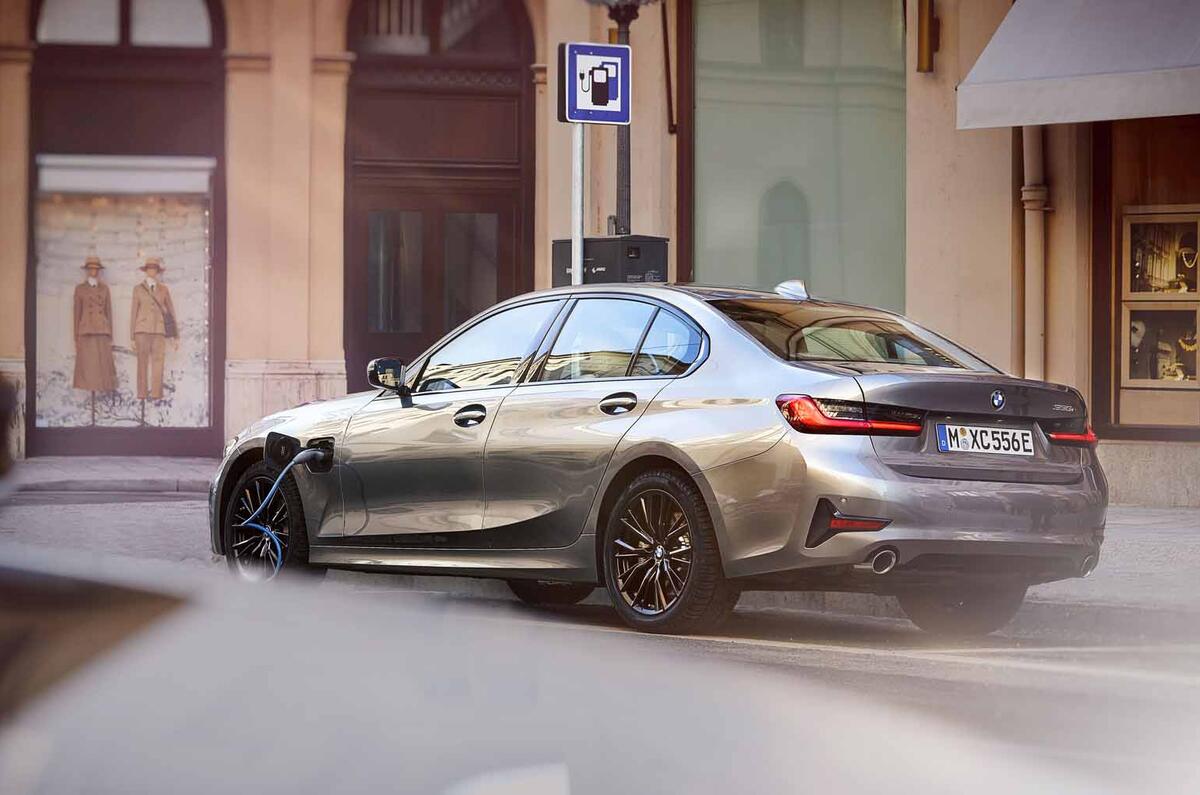
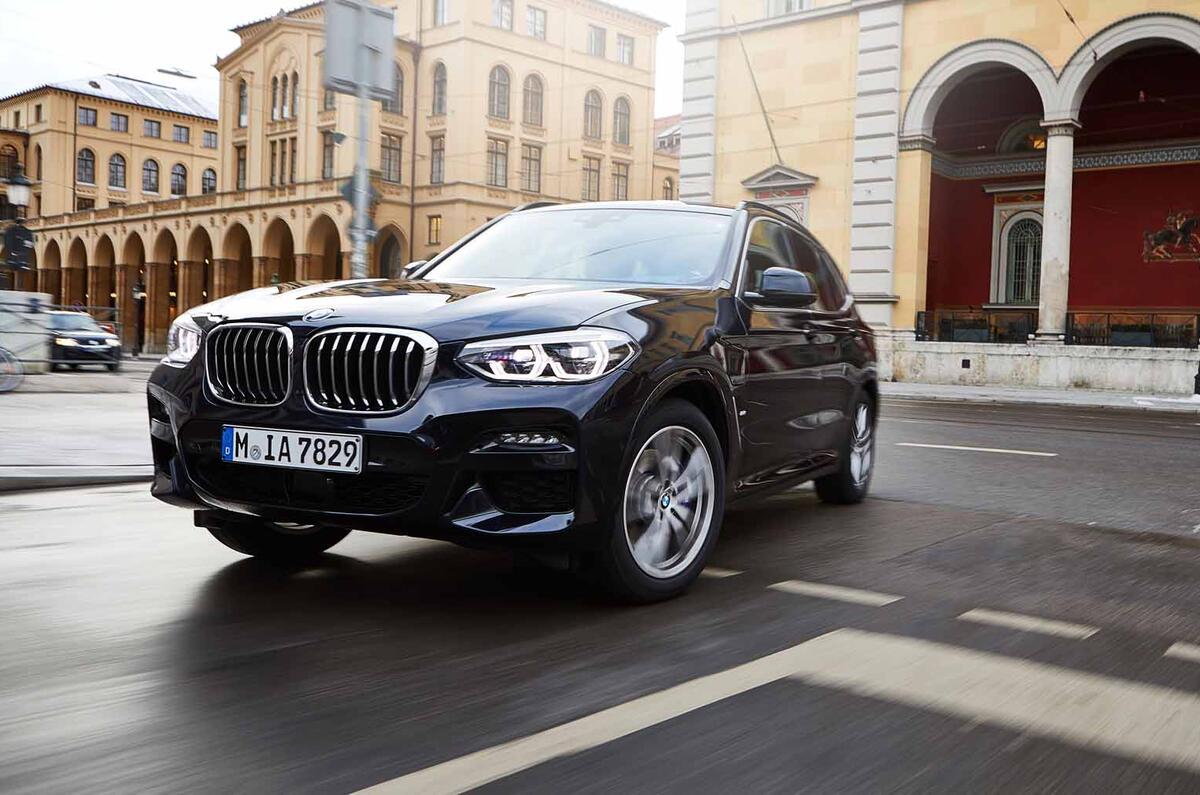
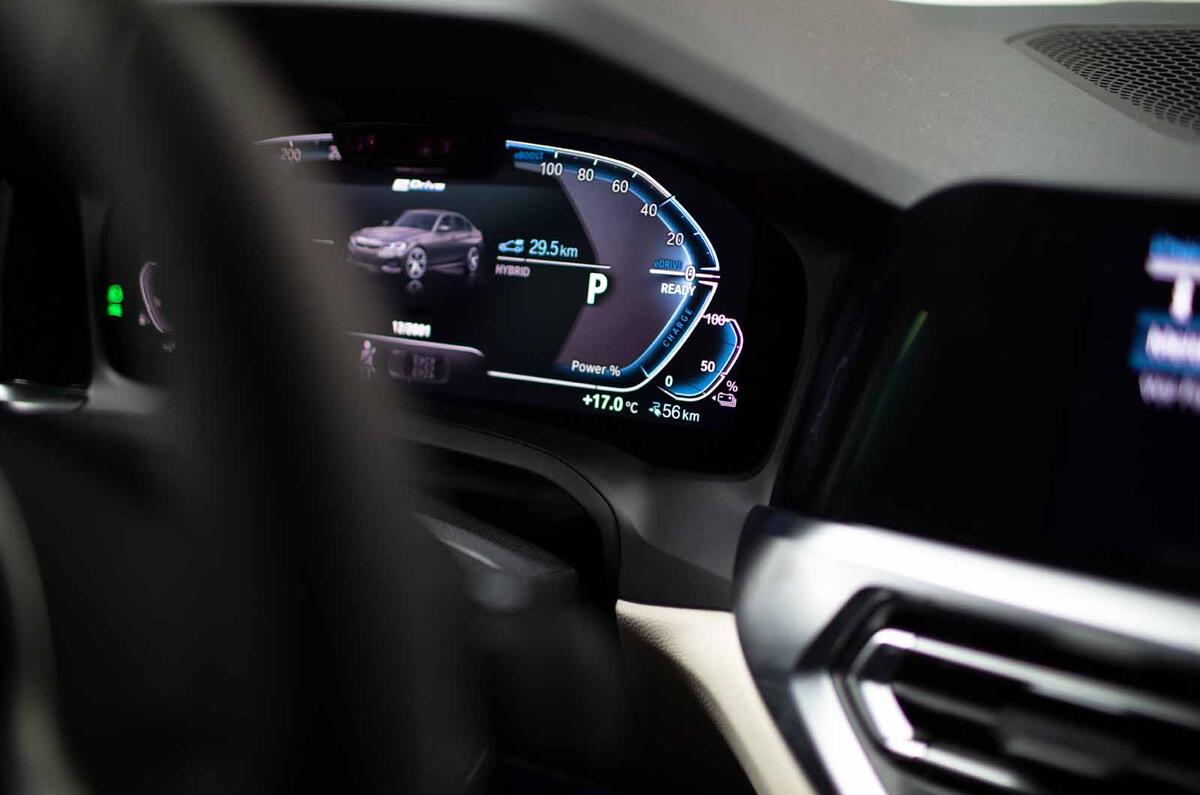
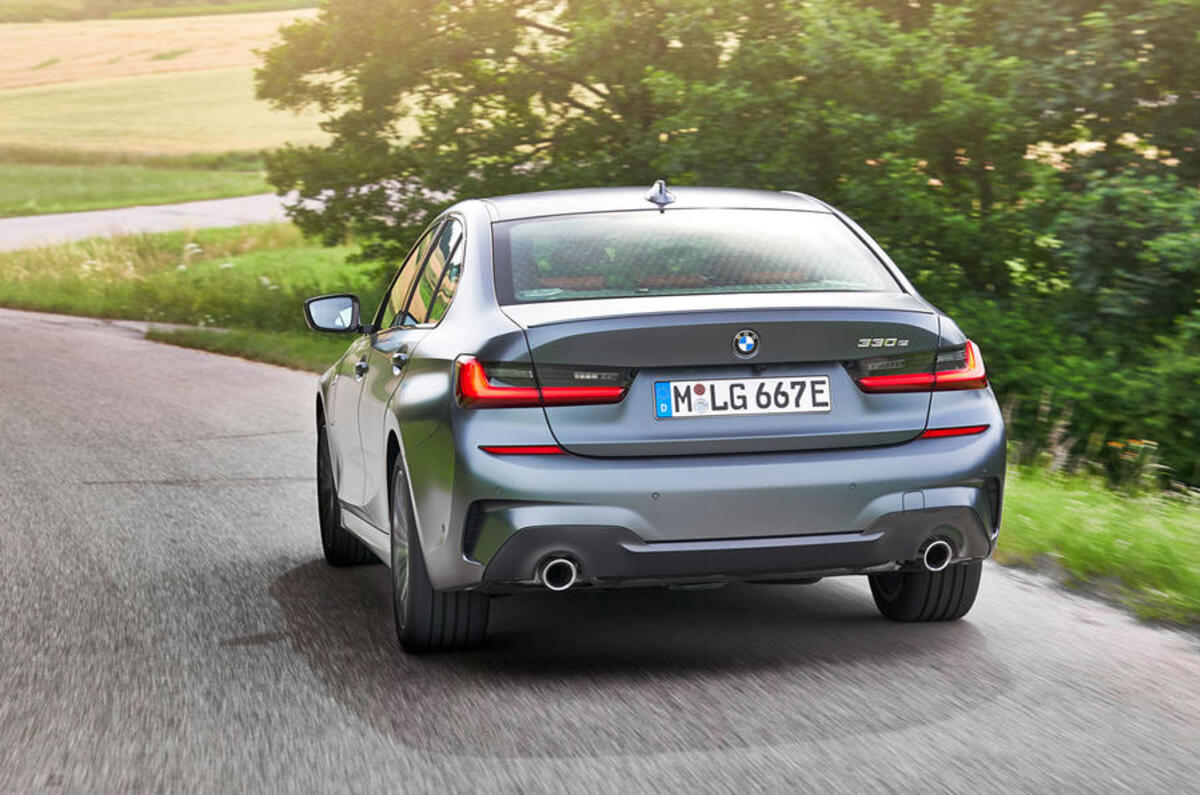








Join the debate
Add your comment
PHEV = poor EV efficiency
'24kWh battery allows a quoted all-electric range of 54 miles' that's pretty poor. After allowing for Manufacturers 'bigging up' the maximum range you might end up with a 24kwh battery (as big as the one in the original LEAF 9 years ago) providing 40 miles electric only range 'in the real world'. I-Pace owners are getting over 200 miles with a 90Kwh battery.
One more thing, how long will it take the private buyer to recoup the 'PH' bit of this £48k 2 litre 4 pot by way of fuel saving ALONE?
xxxx wrote:
I think we all know you are a big fan of EVs by now, but surely you arent confusing an X5 for a Leaf? Next you will be telling us how shocking it is that a Fiesta goes further on a gallon of Petrol than a Galaxy.
Plug ins are for company car drivers, they are for people who are not ready or able to go to EV just yet. They also have the huge benefit of making diesels redundant, and thats going to be of benefit to us all over the life of the car.
To suggest that a private buyer spending around £50k really cares about fuel consumption would be daft, depreciation is the big number against which all other running costs, including fuel are tiny, but the car makers cant sell us the cars we actually want, becuase they will never reach the EU CO2 targets. Adding a large chunk of batterys enables them to sell the cars people want, but with a slightly compromised power plant, whereas with out plug ins what are we going to be driving that produces only 95g/km? Not an X5, thats for sure
I-Pace was the comparrision
Not really confusing it with the LEAF just stating what the original LEAF did with 24kwh. I gave the I-Pace as an example of a big fast 4WD SUV. Never mentioned a Fiesta or Galaxy.
"Plug ins are for company car drivers" I think you've got it, in this case they're a tax dodge!
"To suggest that a private buyer spending around £50k really cares about fuel consumption would be daft" - then why add all that weight, expense and other comprimises? Besides I think some people do worry about chucking thousands away.
At the end of the day what do you think the answer is to my question?
xxxx wrote:
How long to recoup the extra cost of the phev? I guess that depends on the user, as a company car driver the savings in tax will surely recoup the extra outlay, and if a private driver, well if I could afford one I would charge it once or twice a week and not use petrol, so my fuel costs would be very low until I need to go on a longer drive where it acts like a normal hybrid and helps keep fuel use down. Almost a best of both worlds.
Of course I would rather see a fiesta or focus phev, something more normally priced/affordable, as that would be ideal for me and I am sure I am not alone.
And..
You've just re-asked my question. I detailed a private buyer so as to avoid the tax dodging bit, Autocar should give a guide as I posted an example of a Hyundai plug-in and it worked out around 7 years to get your money back
Plug-in once or twice a week?
If you only do around 4,000 miles a year no plug-in would ever pay for itself
Once or twice may have been
I don't think phevs are a waste of time as some who go further could charge daily and save even more but still have a hybrid for longer journeys, but I do think smaller would be better like I said before. Unfortunately it's expensive to manufacture so larger cars have more scope for recouping the outlay.
I've noticed...
increasingly appalling English here on Autocar.
Instead of 'BMW prices up new plug-in hybrid models in UK' which is nonsensical, why not just say 'BMW increases new plug-in hybrid model prices in UK'.
manicm wrote:
Although I'd agree that the English isn't always great on here these days, I don't think "pricing up" means "increases price" like you've presumed. I think it means that BMW have released the prices for the revised (or new) products. I think it should be "BMW releases new plug-in hybrid model prices in UK". I guess the fact that it's open to interpretation proves the point..
The very fact that there is